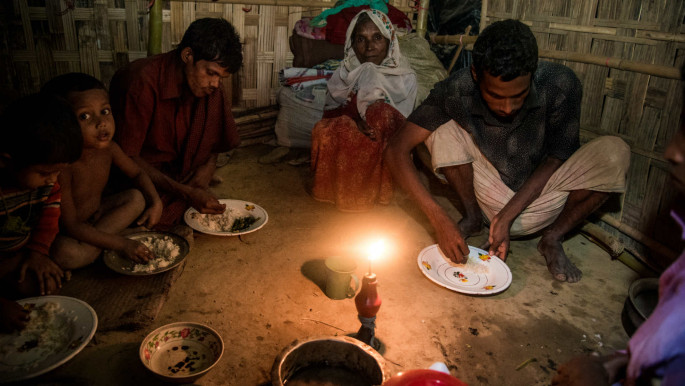Pope defends rights of 'ethnically cleansed' Rohingya Muslims
Pope Francis on Wednesday spoke out over the maltreatment of Myanmar's Rohingya Muslim minority, who he said were being "tortured and killed" for their faith.
The pope used his midweek address to describe the Rohingya as "good and peaceful people" who "have suffered for years."
Francis offered a special prayer for "brothers and sisters" as he alluded to a UN human rights report last week which accused Myanmar's military of likely killing hundreds of Rohingya in an ongoing crackdown.
The report by the UN's rights body OHCHR said the accounts of torture, murder and gang-rape at the hands of security forces were so severe they may amount to ethnic cleansing.
Almost 70,000 Rohingya are reported to have fled to Bangladesh since the army launched "clearance operations" four months ago to find Rohingya militants accused of attacking police border posts.
An estimated 22,000 more have fled to the Myanmar interior according to the UN report, based on 200 interviews and including brutal testimonies of children butchered with knives while their mothers were raped by security forces.
 |
|
| Rohingya are not accorded citizenship in Myanmar [Getty] |
The Rohingya, who number more than one million concentrated mainly in coastal Rakhine state, are treated as virtual foreigners in Myanmar, which is 90 percent Buddhist. They are not accorded citizenship even if their families have lived there for generations.
Myanmar authorities on Tuesday insisted that a state commission investigating allegations of its military abusing Rohingya was focused on the "truth".
But critics have rejected the state-appointed body, which is led by retired general and Vice President Myint Swe and includes no Muslims, as toothless and lacking in credibility.
The UN's top official on preventing genocide, Adama Dieng, on Monday dubbed the commission as "not a credible option" to investigate the abuse claims.
"I am concerned that the government commission... found nothing to substantiate the claims, while OHCHR... found an overwhelming number of testimonies and other forms of evidence," Dieng said.





 Follow the Middle East's top stories in English at The New Arab on Google News
Follow the Middle East's top stories in English at The New Arab on Google News
![Israeli forces ordered bombed Gaza's Jabalia, ordering residents to leave [Getty]](/sites/default/files/styles/image_330x185/public/2176418030.jpeg?h=a5f2f23a&itok=_YGZaP1z)

